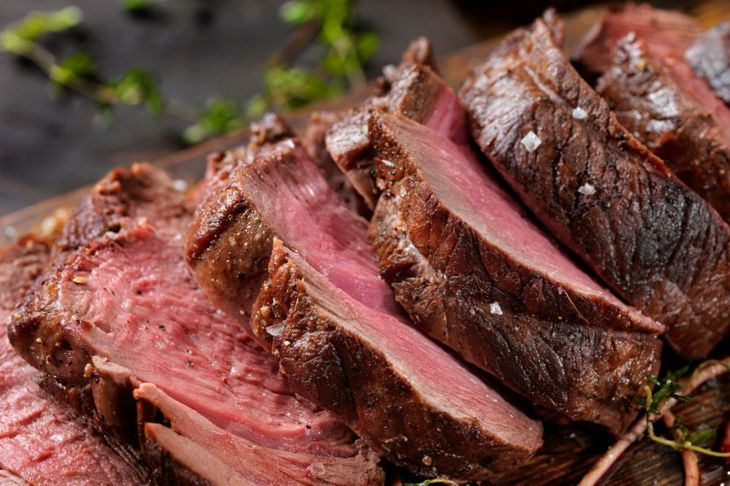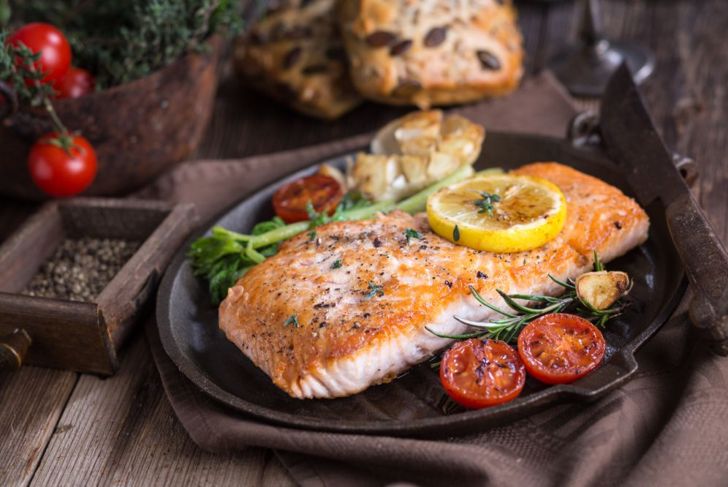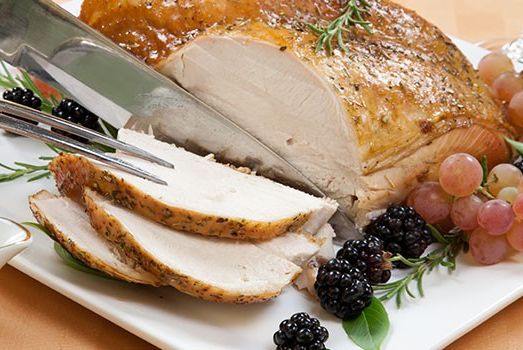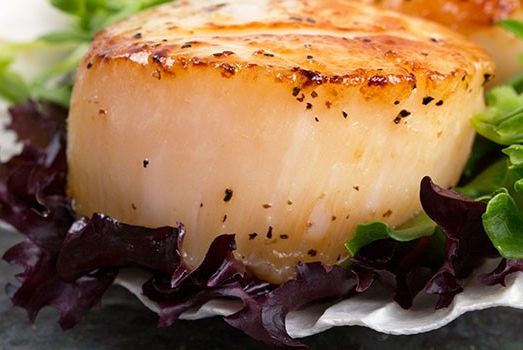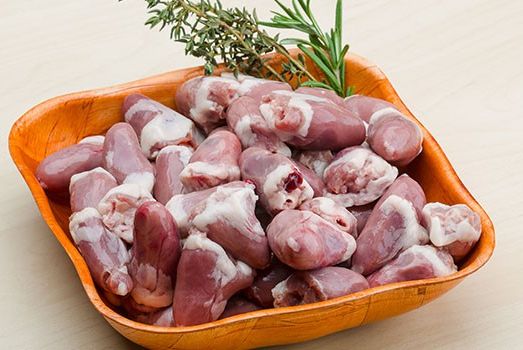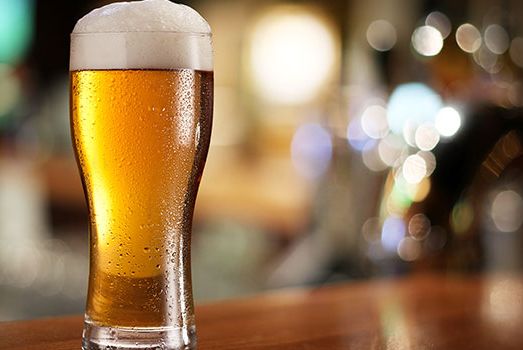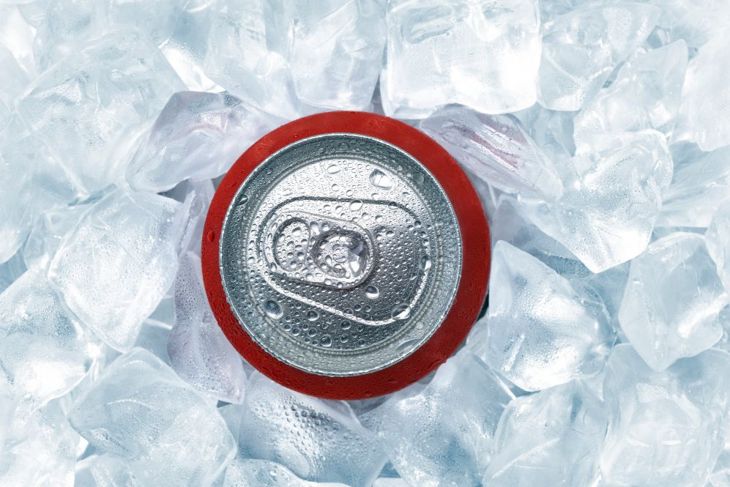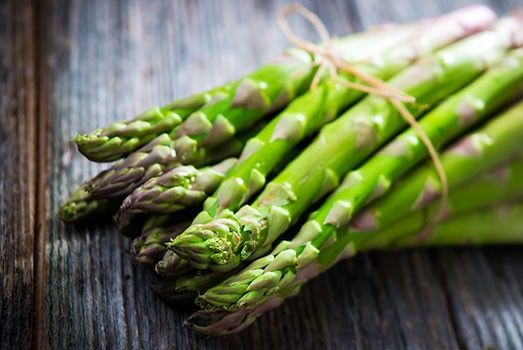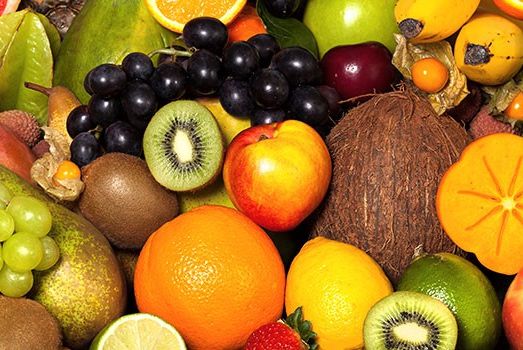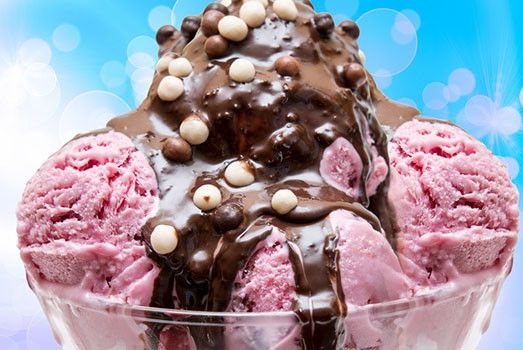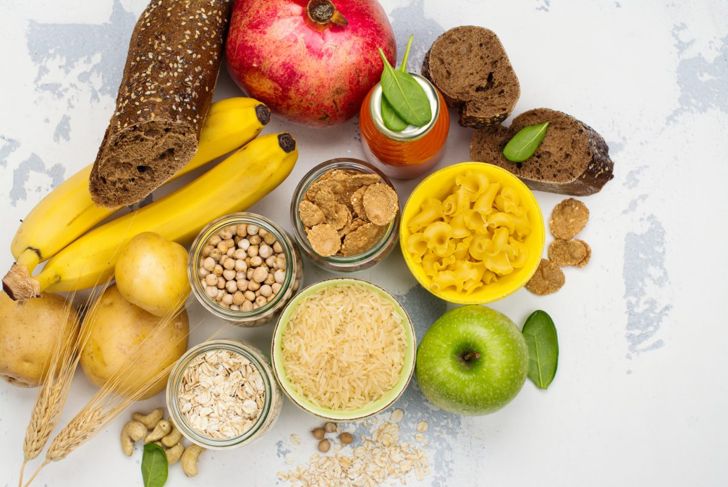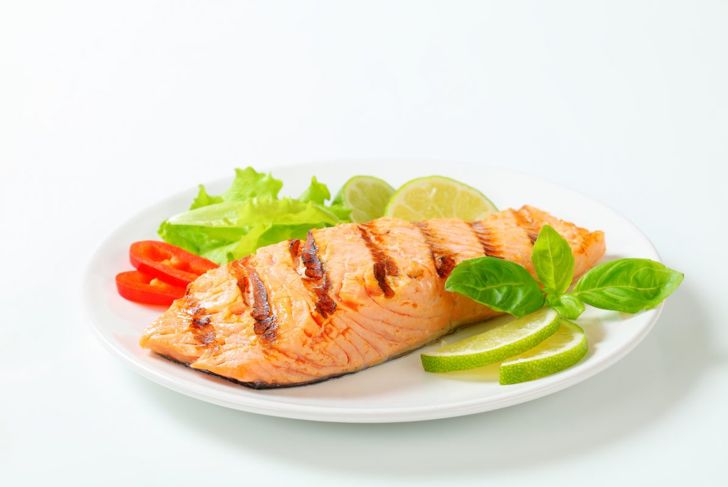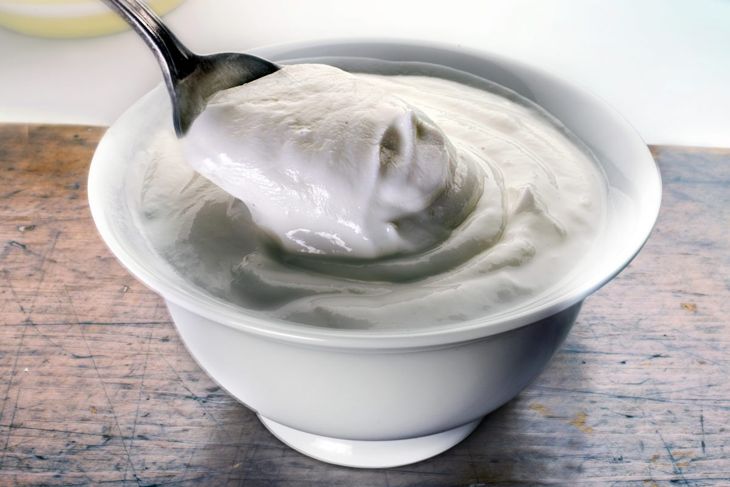Gout is an arthritic condition that causes severe pain in the joints; flare-ups occur unpredictably and with varying frequency, beginning when excess uric acid develops in the blood. Under normal circumstances, the body dissolves uric acid and removes it via the kidneys and urination. Trigger foods prompt excess uric acid to build up and crystalize at the joints. People prone to gout should avoid or minimize specific foods to reduce flare-ups.
Red Meat
Some meats are high in purine. The body breaks down purines into uric acid, but too much can get into the bloodstream and cause gout attacks. Red meat has a higher purine content than white meat, but, of the red meats, lamb is the most problematic. People attempting to avoid gout flare-ups should try not to consume too much beef or pork, limiting meals with these foods to three times a week at most. Those who do consume lamb should choose chops instead of the leg meat.
Fish
Certain fish are rich in purine, and people with gout should avoid them. Problem seafood includes herring, tuna, mackerel, sardines, and anchovies. Salmon is a good, low-purine alternative that is generally considered safe for people with gout in moderation. People with gout should eat fish no more than twice a week.
Wild Game
People prone to gout should avoid the meat of wild game, especially rabbit, venison, quail, pheasant, and goose. Like beef, pork, and lamb, these animals have high purine content that increases the risk of gout attacks. Instead, experts recommend white meat, which most consider safe to eat in moderate amounts when paired with plenty of vegetables.
Scallops
Healthcare providers encourage people with gout to avoid seafood such as scallops. Other fish high in purines include shellfish, sardines, herring, anchovies, codfish, trout, and haddock. Better options are lobster, shrimp, salmon, and crab, as they have lower purine content. A person’s total seafood intake should be no more than six to eight ounces a day. People with gout can enjoy scallops occasionally but should opt for a less problematic delicacy if their flare-ups increase.
Organ Meats
There has been discussion in recent years about the benefits of organ meats for general health, but these parts of the animal are not recommended for people with gout. It is best to cut out tongue, liver, brains, kidneys, and sweetbreads to minimize gout attacks.
Beer
People with gout should avoid drinking beer. The breakdown of beer in the body causes a spike in uric acid levels. Beer also dehydrates the body and slows the elimination of uric acid. Most experts suggest people with gout skip alcohol wherever possible, but an occasional glass of wine is generally fine.
Sugary Drinks
Sweet beverages usually have lots of high-fructose corn syrup, which can stimulate uric acid production and increase the risk of gout attacks. Fresh-squeezed juices and herbal teas are healthier alternatives to packaged fruit drinks and sodas. It is a good idea to avoid all foods that contain high-fructose corn syrup when trying to prevent gout attacks.
Certain Vegetables
Though experts recommend people with gout eat a diet rich in vegetables, some produce is high in purines, including asparagus, mushrooms, peas, spinach, and cauliflower. Eating these vegetables may not trigger an attack as readily as other problem foods; still, doctors may recommend avoiding them, as well as dried fava and garbanzo beans, as a precaution.
Certain Fruits
Like fructose-bearing drinks, some fruits trigger increased production of uric acid. Dates, prunes, lychees, plums, and pears are on the list of fruits to avoid. However, experts suggest that, as with high-purine veggies, most individuals prone to gout can consume them in moderation as long as they take care to avoid other purine- and fructose-rich foods in the same day. If they do seem to cause a problem, it is best to avoid these fruits in the future.
High-Fat Dairy Products
There is some conflicting evidence regarding how dairy products affect people prone to gout attacks.Most studies showthat eating more cheese, yogurt, and ice cream could decrease the risk of gout. However, an excess of high-fat dairy products can cause various issues and may contribute to flare-ups.
Help Prevent Gout Flares with Weight Loss
In addition to avoiding problematic foods, there are also many steps people with or prone to gout can take to help reduce their chances of flare ups.Harboring excess body fat increases the risk of gout. Uric acid is eliminated through the kidneys, and being overweight or obese decreases their functionality and efficiency. The major culprit behind this is belly fat. This isn’t the fat that sits directly under the skin; it’s the visceral type that wraps around the organs. Visceral fat releases chemicals that promote systemic inflammation and lead to related metabolic diseases, including insulin resistance. Weight loss reduces inflammation and gout attack risk.
Complex Carbohydrates Can Keep Gout Away
Complex carbohydrates can reduce gout flares, but it depends on what form they take. Fructose is a type of sugar in honey and fruits. Its breakdown almost immediately increases serum purine levels and the risk of a gout attack. Fruits, whole grains, and vegetables are complex carbohydrates that are great for managing gout because they are digested slowly. While fresh fruits are beneficial, people with gout need to limit or avoid naturally sweet fruit juices with their high concentrations of fructose.
Ease Gout Flares by Hydrating
Staying hydrated is the most readily available means of managing gout. Hyperuricemia occurs when the blood has too much uric acid. A number of conditions and circumstances can cause this, including diseases and medications. Drinking water dilutes uric acid levels in the blood and flushes the organs. The more water consumed, the more uric acid excreted, decreasing the risk of urate crystals in the joints.
Healthy Fats Can Minimize Symptoms of Gout
Certain healthy fats decrease the number of recurring flare-ups. Omega-3 polyunsaturated fatty acids are essential fats that humans must consume because the body can’t make its own. There are times when gout medications manage the disease but do not lower the recurring gout attacks. Omega-3s are well-known anti-inflammatories that are helpful in managing other arthritis conditions, too. However, not all sources are as effective. Two or more servings of cold-water fish, such as mackerel or salmon, are better at lowering recurrent gout attacks — by at least 33 percent — compared to fish oil supplements.
Consume Lean Protein to Prevent Gout Flares
One of the keys to managing gout is to choose proteins that are low in purines, since purines can increase uric acid and trigger gout flares. Beef, shellfish, and organ meat have high levels of purines, while eggs, nuts, seeds, and tofu are safer choices. There was a time when doctors thought that milk was also a hazard. But it turns out that low levels of vitamin D are linked to hyperuricemia. Integrating low-fat milk, cheese, and yogurt decreases the risk of gout attacks.

 Home
Home Health
Health Diet & Nutrition
Diet & Nutrition Living Well
Living Well More
More